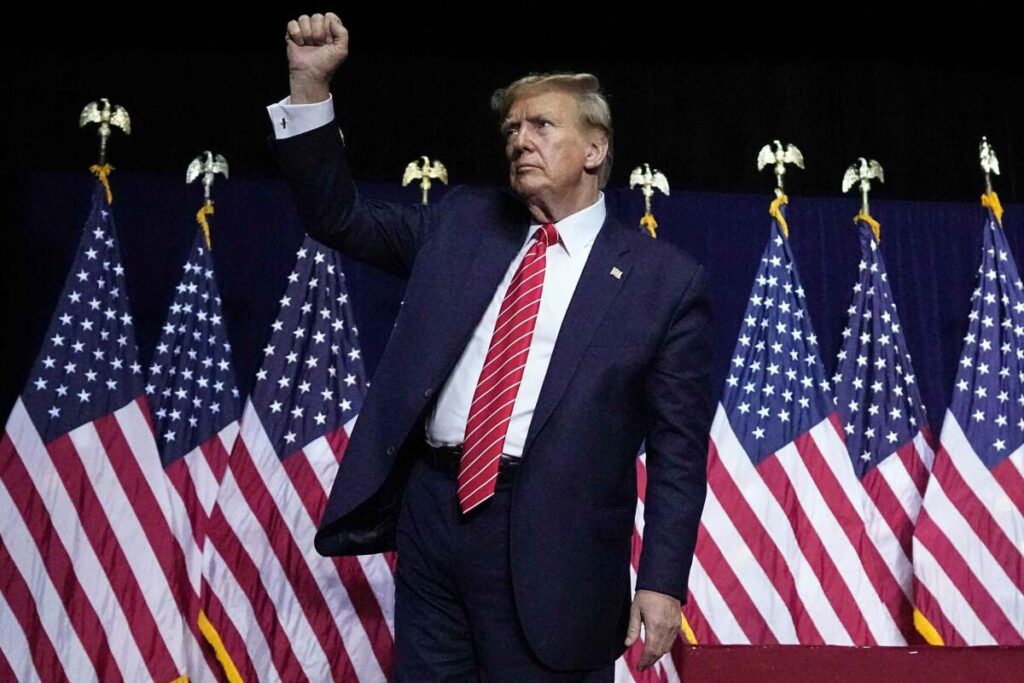
Former U.S. President Donald Trump is grappling with financial challenges as he confronts towering legal expenses and the demands of a costly election campaign. With a looming deadline of March 25 to muster approximately $454 million for his legal fees, Trump’s financial woes are becoming increasingly apparent.
Before his political foray in 2015, Trump was synonymous with wealth and business success, often showcased through his numerous properties including towers, casinos, and sports complexes. However, the actual extent of his fortune has always been shrouded in complexity due to a maze of mortgages and loans, a situation that now seems to work against him. At 77, Trump, who is running for president for the third time, faces not just the prospect of electoral defeat against Joe Biden but also the pressing issue of dwindling financial resources. This scarcity affects his ability to cover both his significant legal costs and the expenses of an inevitably lavish election campaign characterized by aggressive advertising from both camps.
The question arises: Is Trump’s financial distress a strategic ploy to solicit more donations from his supporters, or is it a genuine crisis? According to statements from his legal team, Trump is reportedly unable to provide the $454 million required as collateral to cover a penalty levied against him in February for financial fraud within his real estate business. Attempts to have thirty insurance companies cover this guarantee, with interest, in case of an unfavorable appeal outcome were unsuccessful, as they all declined.
Furthermore, on March 8, in a separate civil lawsuit, Trump managed to secure a $91.6 million deposit from the Federal Insurance Company, corresponding to the compensation owed to columnist E. Jean Carroll, who won a case against Trump for sexual assault and defamation. This development adds another layer to the financial strain faced by the former president as he navigates through these legal and campaign funding hurdles.




































Leave a Reply